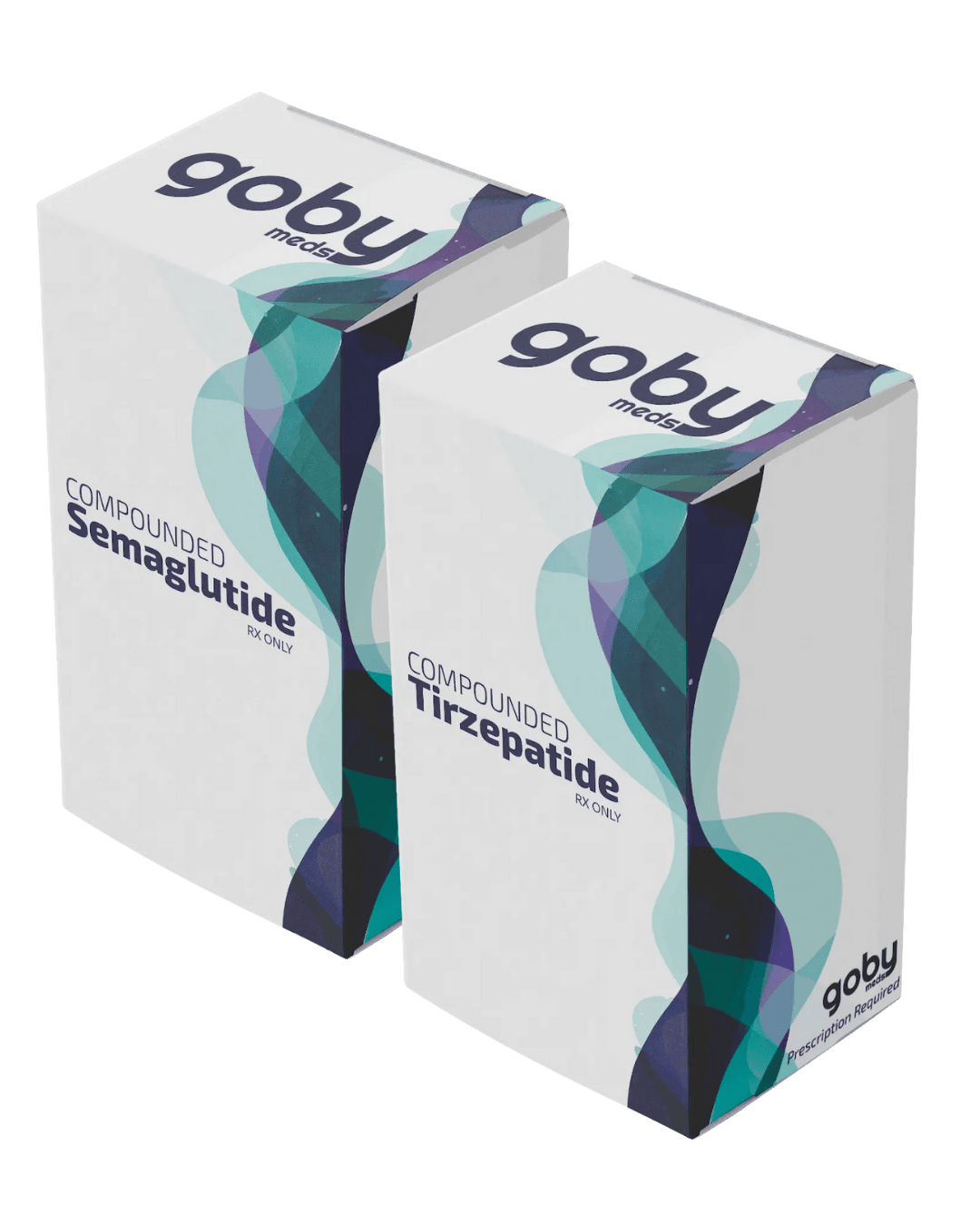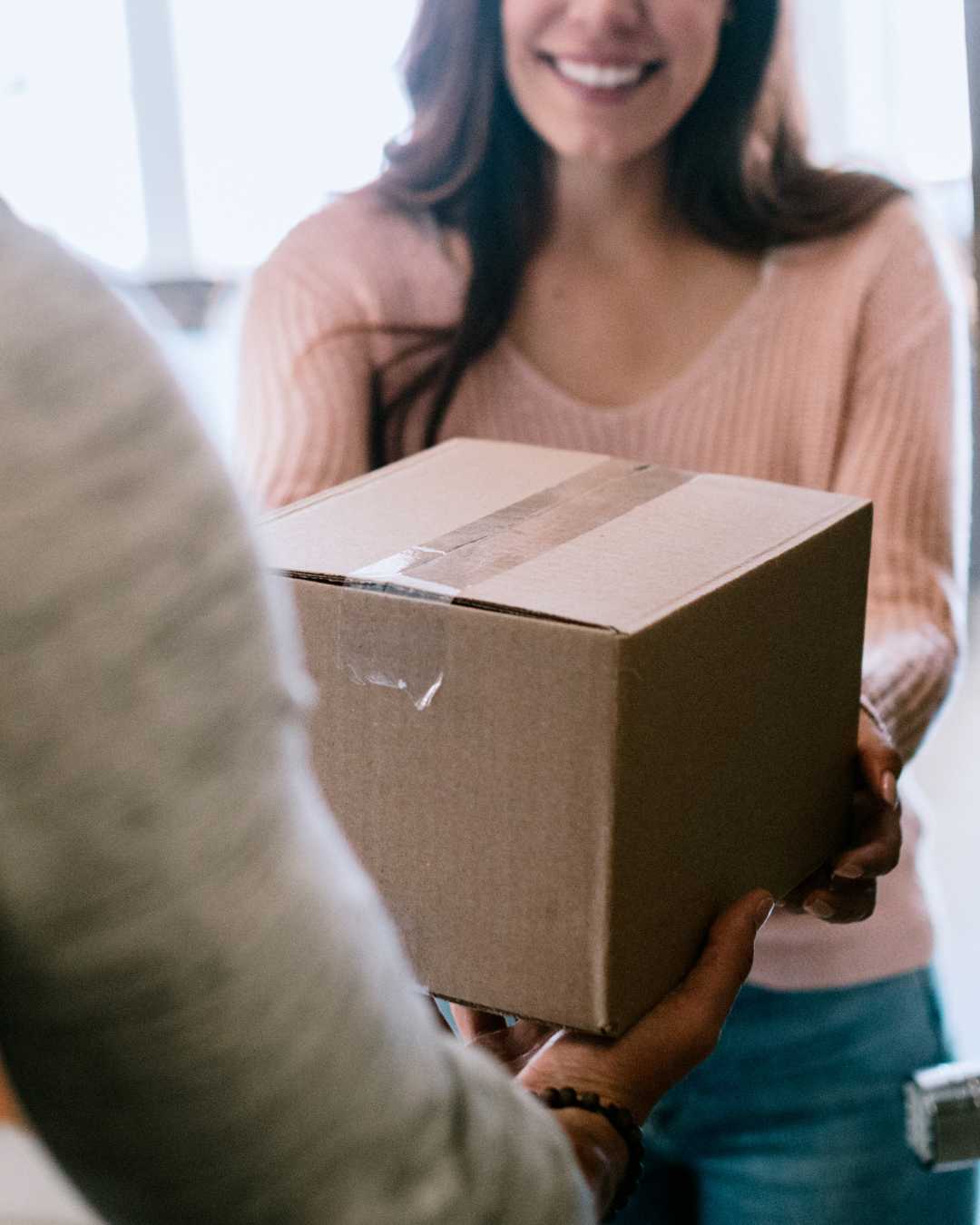Beyond the Scale: The Link Between GLP-1s, Alcohol, and Health
At GobyMeds, we believe wellness is a personal journey. We have guided thousands of members on their paths to weight management and have seen significant transformations. Many of you have told us how personalized GLP-1 medication helped silence the constant "food noise," giving you a renewed sense of control and helping you "feel like myself again."
This feeling of being in control is a key component of general well-being. It’s about regaining agency over your own life. Now the journey to manage food-related thoughts may have a surprising connection to another common challenge: the desire for alcohol.
Recently, many people taking GLP-1 medications for weight management have reported an unexpected side effect: a reduced desire to drink alcohol. Emerging research is exploring this link, suggesting these medications may work on the brain's reward pathways, which are involved in cravings for both food and other substances. Preclinical studies have shown that GLP-1 agonists can reduce alcohol consumption, and early human trials are showing promising results. One recent clinical trial found that weekly injections of semaglutide, the active ingredient in popular GLP-1s, significantly reduced alcohol cravings and the number of heavy drinking days in adults with alcohol use disorder.
A Time for Hope and Healing
This conversation is particularly timely. September is National Recovery Month, a time to discuss health, healing, and hope. For 35 years, this observance has helped increase public awareness around mental health and substance use disorders. It is a time to educate and, more importantly, to celebrate the millions of individuals and families who are thriving in recovery.
The theme, "Every Person. Every Family. Every Community," reminds us that recovery is a collective journey. It highlights the resilience of individuals and the promise of a healthier future. By joining this conversation, we are embracing our role in public health, dedicated to reducing stigma and fostering hope.
Recovery is Whole-Body Health
The journey of recovery is a comprehensive wellness transformation. Sobriety isn’t just about the absence of a substance; it is the active process of cultivating multidimensional health.
When someone commits to recovery, they begin to heal from the inside out. Physical activity helps restore the brain’s reward centers, reducing cravings. Better sleep, balanced nutrition, and healthy coping mechanisms build mental and emotional resilience. A positive feedback loop begins: caring for your physical health can boost self-esteem, which in turn supports mental and emotional fortitude.
A Partnership for Total Wellness: GobyMeds and SobrietyMeds
Because we believe in supporting every person’s journey to reclaim their health, GobyMeds is proud to announce a new strategic partnership with SobrietyMeds.com.
SobrietyMeds is a leader in addiction recovery, specializing in providing accessible, discreet, and evidence-based medication for people with alcohol and opioid use disorders. We have formed this partnership based on a shared belief in patient-centered care, destigmatizing chronic health conditions, and a commitment to medical innovation.
This collaboration reflects a shared vision for the future of healthcare. The mission at GobyMeds has always been to provide personalized tools that empower individuals to reclaim their health. Recognizing that the path to total well-being often involves overcoming addiction, this partnership extends that same level of compassion and evidence-based care to a new part of the wellness journey.
This partnership aims to support a more holistic model of health that recognizes the connection between mind and body.
Evidence-Based Hope: The Role of Medication in Recovery
Our community understands and trusts a medical, evidence-based approach to chronic conditions. SobrietyMeds applies this same gold standard to addiction recovery through Medication for Addiction Treatment (MAT).
MAT is a "whole-patient" approach that combines FDA-approved medications with counseling and behavioral therapies. It counters the myth that this treatment "substitutes one drug for another." Instead, medications like Naltrexone, which is non-addictive, work by normalizing brain chemistry and relieving cravings for alcohol. This creates the stability a person needs to fully engage in the therapeutic work of recovery. This model is recognized as a standard of care by leading health authorities, including the FDA and the National Institute on Drug Abuse (NIDA).
The SobrietyMeds values convenience and privacy when it comes to MAT treatment options: an online intake, a confidential consultation with a licensed medical provider, and the discreet delivery of prescribed medication to your home.
Your Next Step on the Path to Wellness
We believe recovery is achievable and that compassionate, comprehensive support should be accessible to everyone. If you or a loved one is seeking a path forward, we are here to help.
Visit SobrietyMeds.com to learn more about our partnership and the modern path to recovery.
Our mission is unwavering, whether your goal is achieving metabolic health, managing weight, or finding freedom from addiction. We are committed to providing supportive, personalized, and evidence-based medical care for every journey.
Go Be Healthy. Go Be Whole. Go Be You.
References
The glucagon-like peptide-1 (GLP-1) pathway as a pharmacological target for alcohol use disorder.
Frontiers in Pharmacology.
Glucagon-Like Peptide-1 and Alcohol Use Disorder.
Endocrinology, Oxford Academic.
Acta Neuropsychiatrica, Cambridge Core.
Are GLP-1 Drugs the Future of Alcohol Addiction Treatment?
News-Medical.Net.
Popular weight loss, diabetes drug shows promise in reducing cravings for alcohol.
USC Today.
Semaglutide Shows Promise in Curbing Alcohol Cravings.
Psychiatrist.com.
What Is Medication-Assisted Treatment (MAT)?
American Addiction Centers.
Medication-Assisted Treatment FAQ.
Department of Human Services.
Substance Abuse and Mental Health Services Administration (SAMHSA).
Naltrexone For Alcohol Use Disorder.
https://www.addictioncenter.com/naltrexone/alcohol/






.svg)